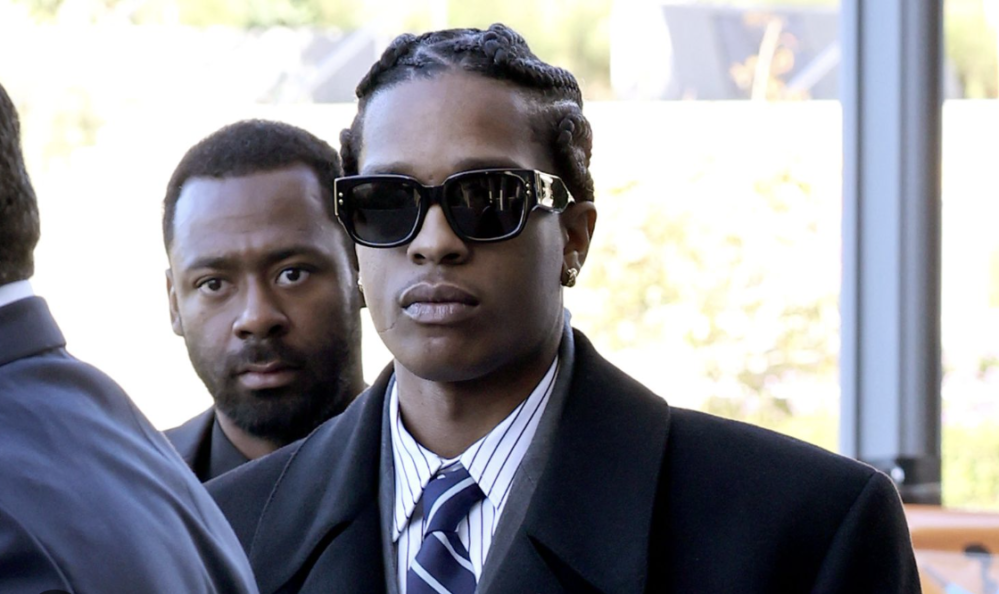ASAP Rocky’s Assault Trial Begins Amid Controversy
The highly anticipated criminal assault trial of rapper ASAP Rocky, whose real name is Rakim Mayers, is currently underway in Los Angeles. The proceedings commenced with jury selection earlier this week, drawing significant media attention due to the serious nature of the allegations against the artist. Rocky faces two felony counts of assault with a semiautomatic firearm, and should he be convicted, he could potentially serve up to 24 years in prison. Reports indicate that the rapper has declined a plea deal offered by prosecutors, which included 180 days in jail, three years of probation, and a seven-year suspended prison sentence in exchange for a guilty plea to a single assault charge.
Details of the Incident and Defense Strategy
The case revolves around an incident that reportedly took place when Rocky allegedly fired a weapon during an altercation with his former friend ASAP Relli. According to Meghann Cuniff, a reporter covering the trial, Rocky’s attorney, Joe Tacopina, disclosed the anticipated testimony of a witness who would speak about a prop gun involved in the incident. Tacopina insists that the firearm used was, in fact, a starter pistol, which was fired as a warning. The defense claims that the weapon was never aimed at Relli, suggesting that Rocky was merely attempting to assert himself during a confrontation where Relli allegedly pursued him.
However, this defense strategy has drawn sharp criticism from the prosecution. Deputy District Attorney John Lewin expressed frustration during discussions in court, labeling the introduction of the prop gun defense as a surprise tactic that prevents adequate investigation into the claims. Lewin stated, “This is a brand-new defense,” and highlighted that the prosecution had no prior opportunities to interview the newly revealed witness.
Concerns Over Fair Trial and Jury Composition
The trial hasn’t been without its challenges regarding fairness. Tacopina raised concerns about the lack of diversity in the prospective juror pool, noting that of the 106 potential jurors, only five are Black. This is particularly notable considering that the trial is taking place in downtown Los Angeles, a city known for its multicultural population. Tacopina described the situation as troubling, emphasizing the need for a jury that reflects the community’s diversity.
Referring to the demographics of the jury pool, Tacopina stated, “We’re in downtown Los Angeles, not a small town in Montana. We’re troubled by that, to say the least.” Judge Mark S. Arnold echoed the concerns during court proceedings, acknowledging the importance of a representative jury and ordering that any witness statements must be disclosed at least 30 days prior to the trial to maintain procedural fairness.
Implications and Potential Outcomes
As the trial progresses, it is crucial to consider the broader implications of its outcomes. The spotlight on racial diversity within jury pools raises significant questions about the judicial system, particularly in high-profile cases involving celebrities from marginalized communities. The outcome of the trial not only affects the future of ASAP Rocky but may also influence public perceptions of the justice system’s handling of celebrity-related cases.
Given the serious nature of the allegations and the significant prison time Rocky could face if convicted, the trial outcome will be closely monitored. The complexities of legal strategies, such as the introduction of new defenses and the critiques regarding jury composition, will likely contribute to ongoing discussions about equity and fairness in the American judicial system.
For updates on the proceedings, listeners can tune in to live broadcasts, as the trial continues to unfold throughout the coming weeks.









